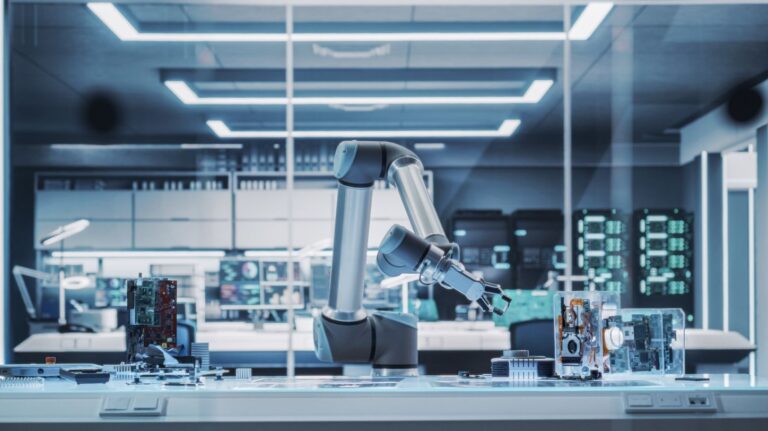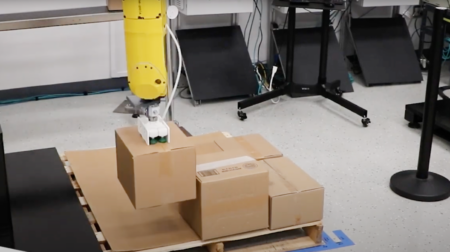Scientists at Bristol Robotics Laboratory carrying out quantum research hope to be able to do so faster, more efficiently and reliably, thanks to the development of a new robotic arm.
Quantum experiments often require highly constrained environments, sometimes combining ultra-low temperatures, atomic-scale interactions and tightly aligned laser beams.
The robotic arm invention, developed by researchers in Quantum Engineering Technology Labs and the Bristol Robotics Laboratory (BRL) at the University of Bristol, was designed to allow quantum experiments to be conducted with increased levels of speed, detail and complexity.
By building robotic features into quantum experiments, scientists can investigate experiments with increased prototyping speed, control, and robustness.
Lead author and senior research associate in the School of Electrical, Electronic and Mechanical Engineering at the University of Bristol, Dr Joe Smith, said: “We couldn’t have performed this experiment using standard lab components, so we decided to look into robotics.
“We’ve shown that robotic arms are mature enough to navigate very complex settings. We’re very keen for this technology to improve all sorts of quantum sensing experiments, and hopefully leading to these experiments leaving the quantum optics lab and find further useful applications, like in cell diagnostics.”
Read more: London hospital broadcasts robot surgery live in UK first
Quantum technology has a host of potential real-world applications, from health advances in monitoring the condition of cells to communication in space.
The high strength magnet the robot holds can be positioned anywhere in three-dimensional space at any angle, navigating around obstacles.
Using tools such as electrodes, lasers, and mirror surfaces, robotic arms could facilitate more precise alignment and manipulation for various experimental set-ups.
Dr Smith and his team were inspired by the way robots are being increasingly used in surgery as they can navigate complicated areas of the body with high precision.
Read more: IFR data reveals EU robot installations grew by six percent in 2022
Dr Krishna Coimbatore Balram, co-author and associate professor in photonic quantum engineering at the University of Bristol, said: “This work demonstrates the importance of bringing developments from other fields, in this case robotics, to advance quantum technologies.”
The research findings and robotic arm were presented in the journal Advanced Science.
The latest developments in robotics and automated technologies will be on show at the Robotics and Automation Exhibition, which will be held on 19-20 March 2024 at the NEC Birmingham. Register now to attend the UK’s biggest exhibition dedicated to robotics and automation!








